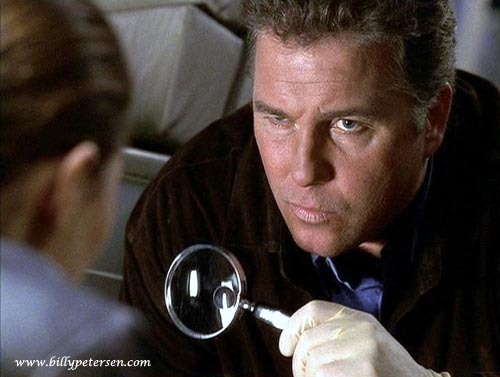 Wrote the first 750 words of a new short story this morning after two false starts. It’s a little slow going because I’m still finding my way in this historical context, but it’s coming together. And there’s a positive omen: I picked up a fortune cookie in the lunch room today and it said, “Good ideas will spring forth naturally from your mind in the coming week.” I like the sound of that.
Wrote the first 750 words of a new short story this morning after two false starts. It’s a little slow going because I’m still finding my way in this historical context, but it’s coming together. And there’s a positive omen: I picked up a fortune cookie in the lunch room today and it said, “Good ideas will spring forth naturally from your mind in the coming week.” I like the sound of that.
A fine episode of Castle this week, one that moves Beckett’s investigation into her mother’s death one step closer to the truth. At first I wasn’t very happy with the direction that investigation was going, when it seemed like it was going to simply be a drug turf thing, but it got more interesting after that. Though it was a cliché, the shooting of the man who is just about to reveal important information took me by surprise. Beckett was splattered by blood. “It’s different when it happens right in front of you, see the lights go out.”
Naturally, Beckett is taken off the case, and Castle is banned from the squad room. “I don’t need you playing Nancy Drew on this,” the captain says. Not Frank Hardy, Nancy Drew. Naturally, they don’t give up. As Castle said, “All the best cops do their best work after they’ve been booted off the case.” This gives Ryan and Esposito a chance to show that they really are cops who can take the lead, even though that didn’t work out so well for them in the long run. The trajectory to “the kiss” was nicely done. Beckett asks Castle for “a stupid idea,” and he has no problem coming up with one. The kiss is a diversion, and then it isn’t. It’s clear they both reacted strongly to it and were almost swept away. They’ll have to deal with this in the future, no doubt, though I like that they didn’t spend a lot of time at the end of the episode processing or denying it.
One of the clues in the episode came by lifting a fingerprint from a living witness who encountered the hit man. Pure hooey, as I discovered today. Two CSIs gave a lunchtime talk at the local community center. A lot of the talk was about how different their jobs are from the ones depicted on television. They don’t drive Hummers. In fact, they recently upgraded from Crown Vics, standard police cars, to Ford Expeditions, which was a boon because the sedans were too small for all the gear they have to carry, which filled their trunks, back seats and, in some cases, their front passenger seats, too. They can’t tote everything in one tidy case. Fingerprints are scanned and entered into AFIS, which then returns a set of possibilities that have to be examined by a person. No automatic match with a photo of the perp. It does happen fairly quickly, though.
The CSIs spend most of their time in the lab or doing paperwork. They do not interrogate suspects or investigate crimes, although in some jurisdictions they do. They each take a week on call as the person who responds to all calls requiring a crime scene investigator. Like on TV, they do fire weapons into a water tank. However, the investigator said that bullets never reach the far end of the 10′ tank. Any movies showing people firing shots underwater that travel large distances are also hooey. Navy SEALS have modified guns that expel the gas from the discharge through the barrel ahead of the bullet so it doesn’t touch water for several feet, which extends the range a little.
They do use fuming super glue to stabilize fingerprints on non-porous objects like beer cans, and they grant that the process could be used to lift prints from a corpse. However, fingerprints consist of body oils, so anyone who grabs another person simply mixes their body oils with the other person’s, so finding a print would be, as the CSI said, like trying to find a piece of hay in a haystack. Sorry Castle writers. No can do.
It was a fascinating talk, and I now have a CSI’s card if I want to tour their facility or if I need research assistance on some project.

